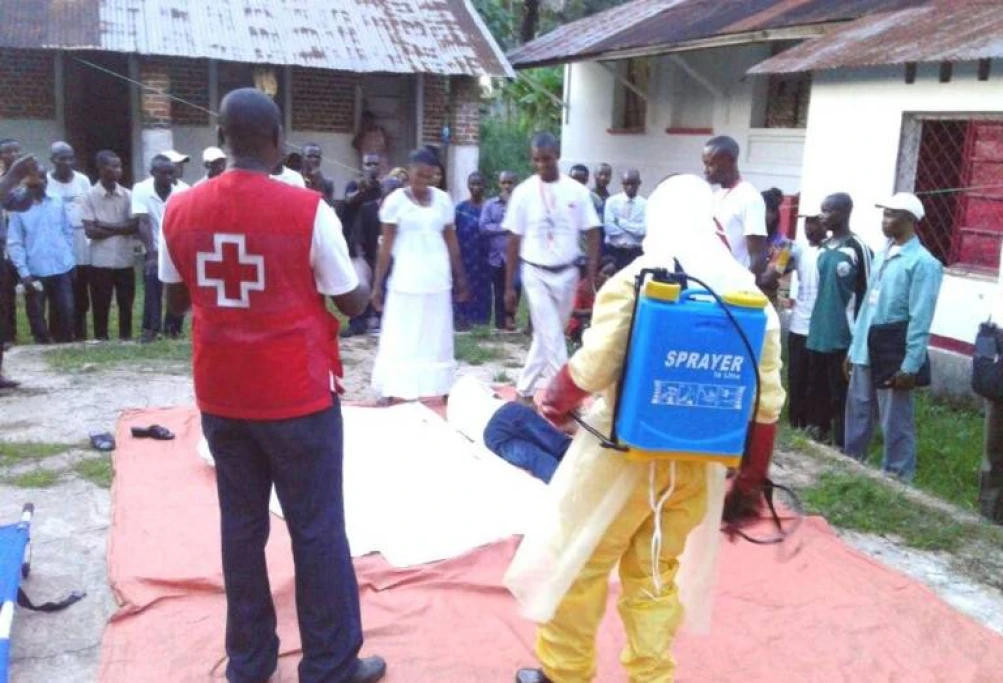
South Sudan Red Cross has announced the receipt of $302,999 to support the work of volunteers at the borders in containing any spillover of the Ebola virus into South Sudan.
The organization has deployed Ebola response volunteers to the border with Uganda and the Democratic Republic of Congo.
Last month, South Sudan activated the incident management system, including the state structure like technical working groups, surveillance teams, and rapid response teams, after Uganda declared the outbreak of the deadly virus in some of its territories.
A joint government-partners meeting identified several emergency hotspots in the country.
They include Juba, Nimule, Kaya, Yambio, Ezo, Maridi, Kajokeji, Tambura and Yei as high risk areas with a lot of movement between the border points.
They agreed to deploy medical teams in these locations to conduct surveillance, Laboratory, Emergency Treatment Unit and Infection Prevention Control.
In a press statement seen by The Radio Community today, the International Federation of the Red Cross and Red Crescent Societies has allocated $153,824 for Ebola preparedness activities.
The Danish Red Cross, Swedish Red Cross and the Netherlands Red Cross also contributed $149,175. The funds have been given to the South Sudan Red Cross to led the intervention.
The money will mainly be used to sensitize the communities on Ebola, including safety measures.
“Our focus is on community awareness, we are using the available resources like our volunteers to engage with the communities and raise awareness within the population,” said John Lobor, Secretary-General of the South Sudan Red Cross.
He mentioned that so far more than 240 volunteers have been trained and deployed at the border sites of Nimule, Kajo-Keji, Kaya, Morobo, Yei, Maridi, Yambio and Juba.
“The trained volunteers will carry out house-to-house visits, mass awareness sessions in schools, churches, mosques, streets, markets. They will also conduct radio talk shows to create awareness on symptoms and prevention of the Ebola Virus Diseases,” Mr. Lobor added.
Twenty-eight volunteers and two community members in each of the locations have also been trained to engage directly with the communities on the disease control.
“In case of an outbreak or if a person dies from Ebola Virus, the trained volunteers will also be able to bury the dead in a dignified manner,” he stated.
The volunteers will further provide psychosocial support and counselling to affected people in case of an outbreak.
The South Sudan Red Cross is a member of the National Technical Committee for the Ebola response chaired by the National Ministry of Health.
Late last month, South Sudan approved half a million U.S dollars to facilitate Ebola response plans under the National Ministry of Health.
Ebola Virus Disease (EVD) is a rare and deadly disease in people and nonhuman primates.
People can get EVD through close contact with the blood, secretions, organs or other bodily fluids of infected animals such as fruit bats, chimpanzees, gorillas, monkeys, forest antelope or porcupines found ill or dead or in the rainforest.
Symptoms of EVD can be sudden and include fever, fatigue, muscle pain, headache, sore throat, vomiting, diarrhoea, rash.
In some cases, both internal and external bleeding (for example, oozing from the gums, or blood in the stools).
According the World Health Organization, supportive care – rehydration with oral or intravenous fluids – and treatment of specific symptoms improves survival. A range of potential treatments including blood products, immune therapies and drug therapies are currently being evaluated.